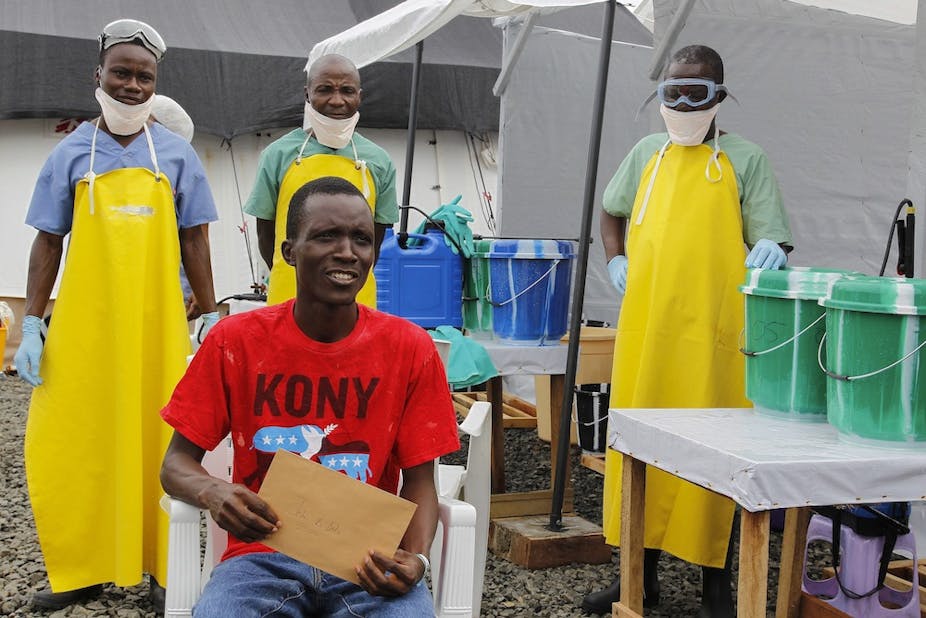Much has been written about the poor public health and clinical capacity to respond to the Ebola outbreak in West Africa. Inadequate medical and nursing staff resources, inadequate isolation wards, inadequate intensive care resources, insufficient ambulances.
An international emergency response is being mounted in an attempt to fill this huge resource gap. Doctors and other health professionals “without borders” are playing a crucial response role, but this is also an important opportunity to consider how to prevent future Ebola outbreaks.
It is clear that diseases like polio, tuberculosis, malaria, and yes Ebola outbreaks such as this, are diseases that thrive in impoverished broken states. While immediate responses are important the urgency of addressing poverty should not be lost. There will be calls for increased aid for Africa, however, a more sustainable strategy could be help Africa to retain it’s internally generated wealth that is currently lost through multi-national corporate tax evasion.
The 2013 Africa Progress Report reveals that Africa loses more in tax evasion than it receives in international aid. Africa could recover more than double its current aid inflow if evaded taxes and other illicit outflows were controlled through international cooperation.
Retaining the internally generated wealth within the country would be much more beneficial on a dollar for dollar basis than piecemeal and uncoordinated aid donations that distort local planning both in the short and long term. It is much healthier for a sovereign government to plan health and other societal infrastructure on their own tax base.
Much of the tax is evaded by multi-national companies “selling” their products or assets out of Africa to shell companies in tax havens at ridiculously low prices so that no profit is recorded in Africa and no tax is payable in the tax haven.
In 2012, the OECD launched Tax Inspectors without Borders to provide international auditing expertise and advice to help developing countries better address tax base erosion, including tax evasion and avoidance. While tax collection may eventually replace the need for medical and public health aid schemes, in the interim it may be that aid directed at tax collection enhancement schemes have better returns on investment than many public health projects.
One project assisting Kenya’s tax administration, under the OECD “Taxes for Development” program, is reported as returning more than $1000 for every $1 invested. Basic sanitation and clean water programs (which are incredibly important) generally have returns of less than $10 for every $1 invested.
This is not an argument to drop water and sanitation programs in Africa but to highlight the importance of tax reform as a development initiative. Additionally, by considering the broader issues of tax evasion this may temper the potentially “victim blaming” argument that African countries are being penny wise and pound foolish in their allocation of clinical versus preventive investments.
“Tax Inspectors without Borders” is not nearly so sexy a concept as “Doctors without Borders” and I cannot imagine what the fundraising brochures would look like. (Nerdy accountants pouring through files trying to track corporate finance flows does not quicken the heartbeat.) But they might save a lot of lives and even prevent future Ebola outbreaks.

